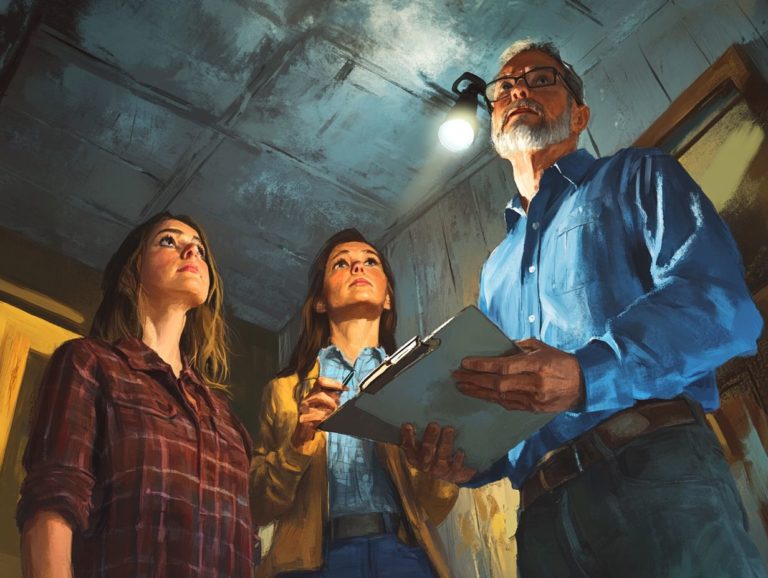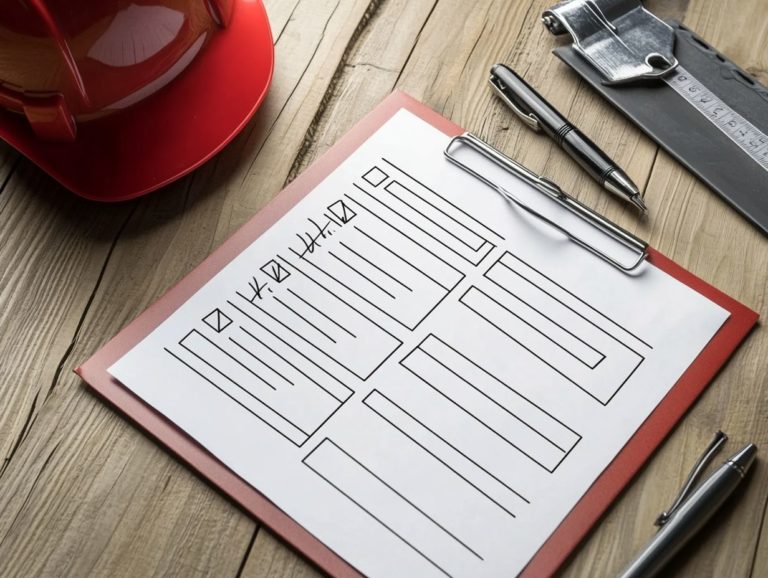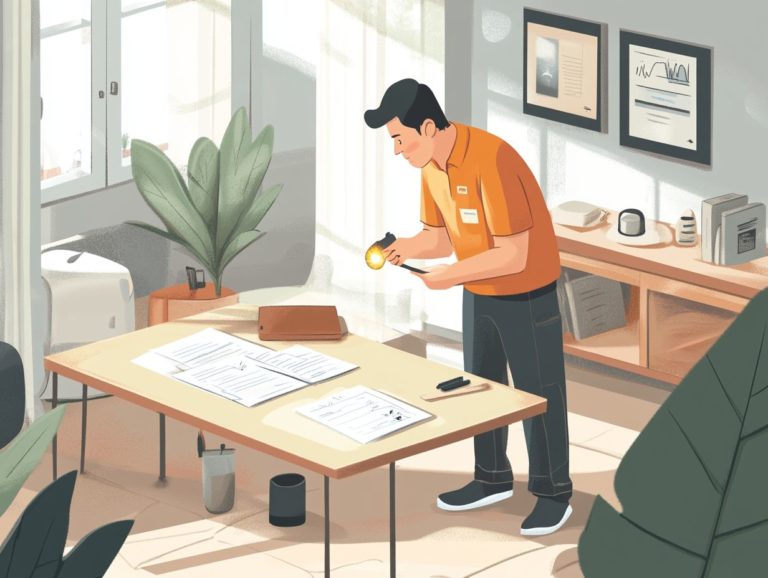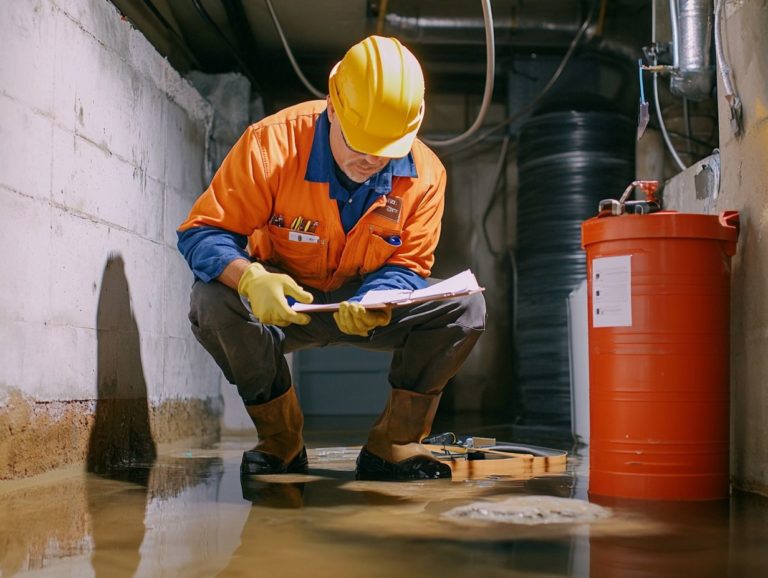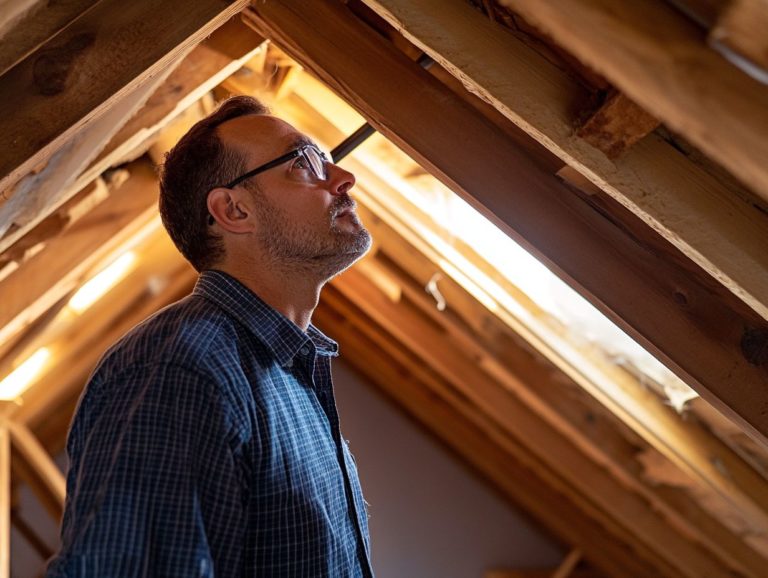How to Choose the Right Inspector for Your Home
Buying a home stands as one of the most significant investments you ll ever undertake. Conducting a thorough inspection is essential to ensure you re making a wise choice.
Home inspections are invaluable; they help uncover potential issues and offer you peace of mind while enhancing your negotiating power during the buying process.
This guide will help you understand home inspections better. We ll also discuss costs and how to find the right inspector for you.
Contents
- Key Takeaways:
- Why Home Inspections are Important
- Qualities to Look for in a Home Inspector
- Questions to Ask Potential Inspectors
- Comparing Inspection Reports
- Costs and Fees for Home Inspections
- Choosing the Right Inspector for Your Specific Needs
- Frequently Asked Questions
- What factors should I consider when choosing a home inspector?
- How can I find a reliable home inspector?
- What questions should I ask a potential home inspector?
- Do I need to be present during the home inspection?
- How much does a home inspection usually cost?
- Can I negotiate the price with a home inspector?
Key Takeaways:
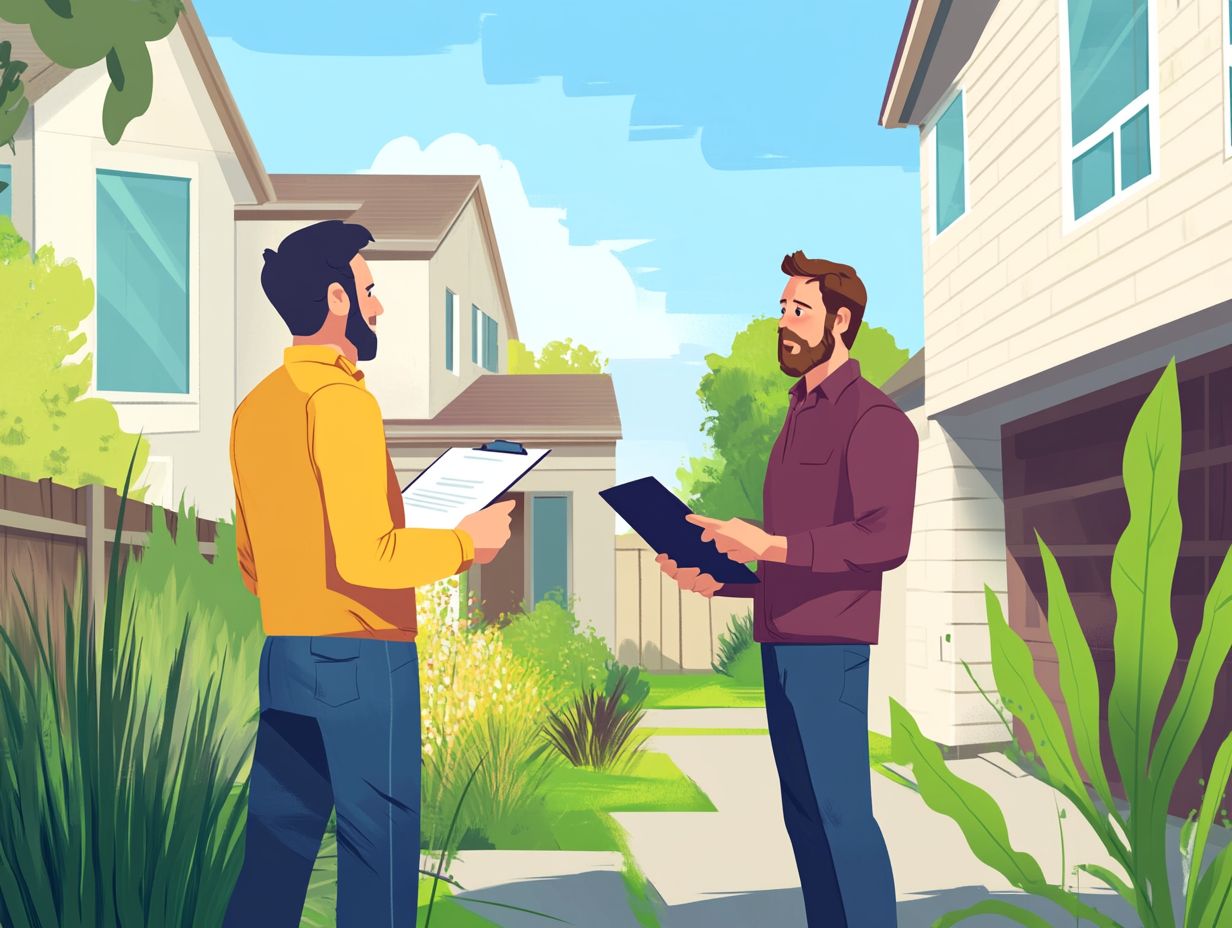
- Prioritize experience and certification in home inspectors.
- Ask about credentials and clear pricing.
- Consider local expertise and specialized services.
Why Home Inspections are Important
Home inspections are an essential part of the homebuying journey. They ensure you have a clear picture of a property’s condition before making a commitment.
A careful inspection can reveal hidden issues like structural problems, mechanical failures, mold, and pest infestations issues that could lead to significant and costly repairs later on.
By uncovering these concerns early, you enable yourself to negotiate a better price or request necessary repairs. This ultimately protects your investment and enhances the safety of your new home.
Understanding the Purpose of a Home Inspection
A home inspection acts as a thorough evaluation of a property’s condition, enabling you as a potential buyer to make informed decisions based on its current state.
This vital process is designed to reveal hidden issues that might not be immediately apparent, such as structural damage, plumbing problems, or electrical hazards.
With a comprehensive inspection report in hand, you gain invaluable insights that allow you to negotiate repairs or adjustments in the sale price.
It also helps you prioritize necessary upgrades and plan for future maintenance, ensuring that your investment aligns perfectly with both your needs and expectations.
Qualities to Look for in a Home Inspector
Finding a trustworthy home inspector is crucial for ensuring a thorough evaluation of the property you intend to purchase. To learn more about this process, check out our guide on how to find a qualified home inspector. This is particularly important during such a significant investment as homeownership.
Look for qualities like extensive experience, certification from respected professional associations such as the American Society of Home Inspectors (ASHI), and an array of positive customer reviews. Additionally, knowing how to choose the right real estate agent can make a significant difference in your home-selling experience.
These factors can profoundly influence the quality of your inspection process, ultimately safeguarding your investment.
Experience and Certification
When choosing a home inspector, it’s essential to prioritize experience and proper certification. These factors reflect the inspector’s knowledge and commitment to industry standards, so be sure to consider how to choose the right inspector for your property.
A certified home inspector not only has the required educational background but also keeps abreast of state licensing requirements and the ever-evolving regulations within the industry.
This level of expertise means you ll receive a precise assessment of the property s condition, uncovering any hidden issues or safety hazards that could lead to expensive repairs in the future.
Knowing that your inspector meets established certification standards gives you peace of mind, assuring you that the inspection process will be thorough and dependable.
A well-trained inspector provides valuable insights into necessary repairs and maintenance, enabling you to make informed decisions about your investment.
Thoroughness and Attention to Detail
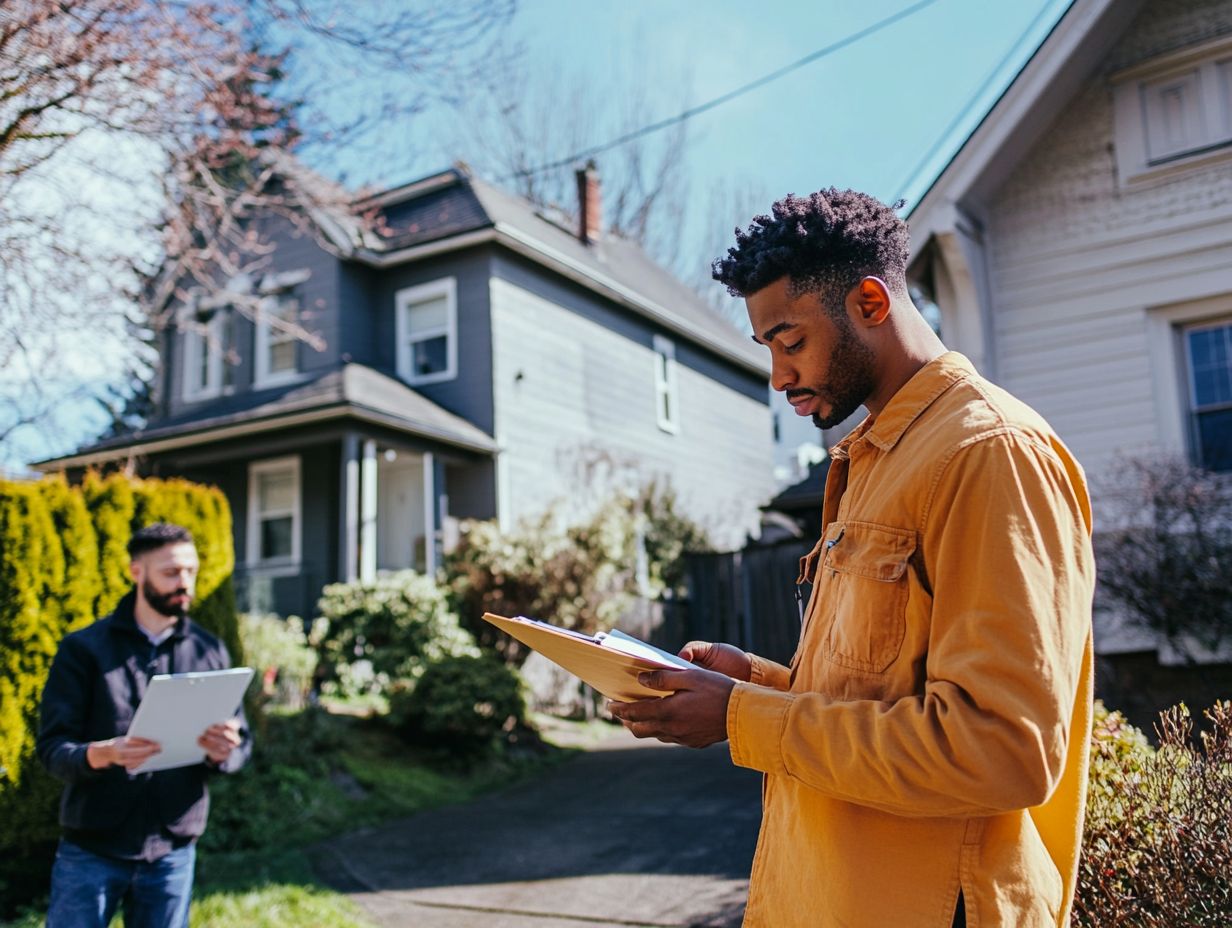
A thorough home inspection demands your attention to detail, ensuring that every facet of the property is carefully evaluated and documented in the inspection report.
This careful method is essential for uncovering potential issues that could compromise safety or jeopardize the overall integrity of your home.
The importance of thoroughness extends beyond merely identifying hidden problems; it also provides you with a comprehensive overview that enables knowledge-based decision-making, whether you are a buyer or a seller.
A well-executed inspection report becomes a valuable resource, often containing detailed quotes from industry professionals that clarify the findings. This level of detail fosters transparency, enhances trust among all parties involved, and promotes a smoother transaction process.
Questions to Ask Potential Inspectors
When you’re interviewing potential home inspectors, asking the right questions is crucial. It clarifies their credentials and helps you understand how to select a home inspector for your needs, enabling you to make an informed decision about the home inspection services you choose.
Clarifying Credentials and Process
Clarifying the credentials of a home inspector is essential for understanding their qualifications and the home inspection process they utilize.
By evaluating their certification, which typically involves training and examinations from recognized institutions, you gain valuable insight into the inspector’s expertise. Their experience level is also significant; those with years in the field are likely to have encountered a diverse range of issues, allowing them to provide comprehensive evaluations.
It’s crucial to inquire about the methodologies used during inspections, as each inspector may employ different techniques or tools that can impact the overall assessment of the property.
Consider these factors to choose a qualified professional for this vital task.
Comparing Inspection Reports
When you compare inspection reports from various inspectors, you’re unlocking valuable insights into the true condition of the home. This process helps you uncover any hidden issues that might not be immediately obvious, giving you a clearer picture of what lies beneath the surface.
What to Look for in a Detailed Report
When you review a detailed report from a home inspection, it s vital to pinpoint key indicators of home safety, particularly mechanical and structural concerns.
These indicators include the roof, foundation, and systems like electricity and plumbing. Be sure to watch for any signs of water damage, as this can lead to mold growth an often-overlooked hazard that can pose serious risks.
Evaluating safety features like smoke detectors, carbon monoxide alarms, and sturdy stair railings is essential to preventing future accidents. Remain vigilant about potential pest infestations, as they can compromise both safety and comfort.
By thoroughly understanding these elements, you will be enabled to make informed decisions about your investment and enhance your overall home security.
Costs and Fees for Home Inspections

Knowing the costs of home inspections is critical for smart budgeting don’t overlook this!
Rates can fluctuate considerably due to a variety of factors, making it imperative to stay informed.
Understanding the Pricing Structure
The pricing structure of home inspections often hinges on several key considerations, including the inspector’s qualifications and the range of services offered.
The property’s location can have a notable impact on costs. Inspectors tend to charge a premium in urban areas compared to their rural counterparts.
The size of the property is another significant factor; larger homes generally demand more time and resources for a comprehensive evaluation, which in turn affects the overall price.
If you need specialized services, be ready for extra fees.
By grasping these dynamics, you can navigate the complexities of selecting a home inspection service that aligns with your needs while ensuring you receive fair and transparent pricing.
Always compare quotes from different inspectors to ensure you get the best deal!
Choosing the Right Inspector for Your Specific Needs
Choosing the right home inspector for your unique needs can greatly influence the quality of the inspection and enhance your overall home-buying experience. For guidance on this important choice, refer to how to choose the right inspector for your home. This decision deserves careful consideration, as the insights provided can be very helpful in making an informed investment.
Considering Location and Specialized Services
When selecting a home inspector, consider their location and any specialized services they offer. Learning how to spot a good home inspector can significantly enhance the relevance of the inspection for your property type.
Accessibility to inspectors can vary greatly based on their geographical positioning. This influences how quickly they can respond to your inspection requests or conduct follow-ups.
If you reside in an area known for specific environmental concerns, such as radon or lead contamination, choosing a local inspector who specializes in these services can be very helpful.
These professionals not only carry the necessary certifications (official credentials showing expertise) but also possess a deep understanding of local regulations and common regional issues. This ensures a thorough assessment tailored to your specific needs.
By prioritizing both location and specialized expertise, you ll feel confident knowing you made the right choice and ensure a more comprehensive evaluation of your potential property.
Frequently Asked Questions
Here are some common questions to guide you in finding the right home inspector.
What factors should I consider when choosing a home inspector?

When choosing a home inspector, consider their qualifications, experience, reputation, and the services they offer. It’s also important to understand how to choose the right inspector for your needs by checking for any licenses, certifications, and insurance that the inspector holds.
How can I find a reliable home inspector?
You can find a reliable home inspector by asking for recommendations from friends, family, or your realtor. Additionally, search for certified home inspectors through reputable organizations such as the International Association of Certified Home Inspectors (InterNACHI) or the American Society of Home Inspectors (ASHI). It’s also helpful to know how to compare home inspection services to ensure you’re making the best choice.
What questions should I ask a potential home inspector?
Some important questions to ask a potential home inspector include their experience, qualifications, areas of expertise, the type of report they provide, and whether they will allow you to be present during the inspection. Additionally, understanding how to choose the right real estate agent for you can also enhance your overall home buying experience. You can also ask for sample reports and references from previous clients.
Do I need to be present during the home inspection?
While it is not required, it is highly recommended that you are present during the home inspection. This allows you to ask any questions and address any concerns you may have. It also enables the inspector to show you any potential issues in person and provide recommendations for maintenance and repairs.
How much does a home inspection usually cost?
The cost of a home inspection can vary depending on the size, age, and location of the home, as well as the services offered by the inspector. On average, a home inspection can cost anywhere from $300 to $500. It is important to get quotes from multiple inspectors and compare their services before making a decision.
Can I negotiate the price with a home inspector?
Yes, you can negotiate the price with a home inspector. However, keep in mind that the cost should not be the only factor when choosing a home inspector. Consider their qualifications, experience, and reputation to ensure you are getting a thorough and reliable inspection.
Don t wait find your perfect inspector today!

